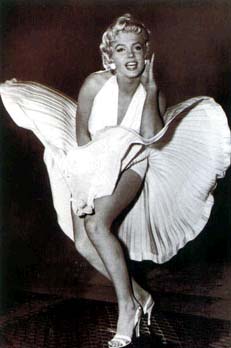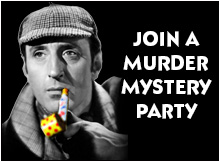|
Marilyn Monroe's Death: Countdown To Tragedy - CoverUps.com
Marilyn Monroe started shooting the film comedy "Something's Got to Give." for Twentieth Century Fox in April of 1962. This was 17 months after her starring role in "The Misfits" opposite Clark Gable and Montgomery Clift. It's also 15 months after her divorce to "The Misfits" screenwriter, Arthur Miller, and 14 months after she had been treated for addiction to barbiturates and alcohol. But the actress's respiratory infections and chronic stage fright delayed shooting of her last movie from the start. Then on May 19, as Monroe traveled to New York City – despite a high fever and threats from Fox that she could be fired for any more absences – to sing "Happy Birthday" at a Democratic fun-raising tribute to President John F. Kennedy. Marilyn stood in the darkness at the very edge of the Madison Square Garden stage. In the center was President Kennedy's brother-in-law Peter Lawford, teasing the political crowd with an in-joke about a secret many of them knew – that Monroe was the President's lover. Just before she stepped into the lights, Marilyn sighed and straightened her shoulders. An audible gasp that built into a roar greeted the star as she entered, dancing through circles of light. She coyly clasped an ermine wrap about her, covering her $12,000 Jean Louis beaded gown, paused until the frenzy quieted, then let the fur fall backwards into Lawford's hands. As she began singing, Marilyn seemed energized, perhaps from Dexedrine pills prescribed by studio doctors combined with megavitamins and antibiotics. "It was like mass seduction,"the event's producer, composer Richard Adler, recalled. "With Marilyn whispering 'Happy Birthday' and the crowd yelling and screaming." Not present was the First Lady. "Jackie knew about the affair by then," said L.A. Mayor Sam Yorty, a national figure in Democratic politics at the time. "That's why she stayed away." After the seven-minute performance, a feverish, dizzy Monroe collapsed in her dressing room. She was carefully snipped out of the designer dress, then bathed with cool hand towels in an attempt to lower her temperature. Two hours later, Monroe made her entrance at a party given by theater magnate Arthur Krim. After an hour, President Kennedy pulled the actress away from the other guests and into a corner, where they were soon joined by Robert Kennedy. The three stood talking for approximately 15 minutes. Later the Attorney General appeared uneasy as White House journalist Merriman Smith chatted with Monroe while writing in a small notebook. When Bobby was informed by a Secret Service agent that a candid photo had been taken of Marilyn and the Kennedy brothers, his face grew stormy. Shortly after 1A.M., Secret Service agents escorted the President and Marilyn, who had met Kennedy in 1954 and had met Kennedy in 1954 and had been having an intense affair with him since December 1961, to the basement of Krim's apartment house and through a series of tunnels that led to the Carlyle Hotel, where JFK maintained a penthouse. "I learned from an FBI agent that they remained in the suite for several hours," said columnist Earl Wilson in an interview. "It was the last prolonged encounter between them." What kept them locked inside the bedroom wasn't just sex. Monroe complained to at least two friends that Kennedy was perfunctory in bed. "She insisted that he made love like an adolescent," recalled Monroe's longtime friend and former lover Robert Slatzer. Monroe and the President would gossip for hours – on the phone, at Lawford's Santa Monica mansion and in the Carlyle. At 2:30 A.M. Merriman Smith was awakened by banging on his apartment door and was confronted by two Secret Service agents, who grilled him for an hour about his appearance at the private affair. "They wanted to make sure I didn't write about Marilyn and Bobby," he told Richard Adler, who had gotten him into the party.et apartment just before 4 A.M. Her masseur, Ralph Roberts, was waiting. As they chatted about the birthday party, Monroe had enthusiastic praise for Robert Kennedy. She had never mentioned the Attorney General until that night. He had startled her by discussing politics, an acknowledgment that there was more to Monroe than there was more to Monroe than her glossy image. But she told Roberts there was no chance of an affair with RFK. "He's not my type," Roberts recalled her saying. "I think the word she used was 'puny.' " Monroe returned to filming on the Fox lot two days later with a severe sinus infection masked by amphetamines and painkillers. The following weekend, she learned that the President was about to end their affair, at the urging of advisers who believed his public flirtation could harm his political future. Word of the brush-off left the actress shattered, and filming was delayed again. Shortly afterward, Monroe was bedridden with a bronchial infection and missed two more days on the set. When Monroe was working, director George Cukor would often punish his fragile star by insisting on dozens of unnecessary retakes, undermining her confidence. On June 8 executives at the financially troubled film company fired Monroe. To justify the studio's actions, Fox press agents launched a negative publicity blitz labeling Marilyn mentally ill. Shortly after Monroe was dismissed, Robert Kennedy arrived at her Brentwood home for a visit that was both personal and political. The President had changed the private Oval Office phone number he had given Monroe, so she had begun calling the main White House switchboard, angrily giving her name when operators would not put her through. Sometime during their walk around Marilyn's pool, the Attorney General sternly told Monroe to "stop calling the White House." To compensate for the loss of the President's secret line, Bobby gave her his own private number at the Justice Department. "He was a wonderful person to tell your troubles to," remembered his press aide, Ed Guthman. "and Marilyn called him a lot during the summer of 1962. But then so did Judy Garland and the other ladies in trouble." When it came to keeping the Kennedy family name clean, Robert Kennedy must have seemed almost invincible that summer. By seeing to it that scores of documents and phone logs were given top-secret classifications, the Attorney General had hidden all traces of JFK's affair with alleged Mafia party girl Judith Campbell Exner. Bobby even functioned as a marriage counselor to control the fights and hide the infidelities within the Kennedy family. Columnist Walter Winchell privately described him as the family's "sexual policeman." When RFK heard from the Secret Service that JFK had asked for an introduction to a young German socialite in Washington, Bobby launched an FBI investigation. Discovering that she had a previous affair with a Soviet attache, he saw to it that she was summarily deported. At this point, some believe the Attorney General became the careless brother as he embarked on a blazing love affair with the most famous woman in the world. Bobby and Monroe's 90-minute meeting in the garden of her house two months before her death led to a long-distance-relationship so intense and passionate that Monroe's maid Hazel Washington described it as "making love over the phone. And I do mean making love." When it came to phone sex, Marilyn and Bobby were pioneers, ahead of their times. Within a few days, Monroe was able to reach Bobby anywhere – from Hyannis Port to Europe. Marilyn and Bobby saw one another often during the next few weeks, giving RFK's frequent visits to L.A. to oversee filming of "The Enemy Within," adapted from his best-seller about his crusade against organized crime. Neighbors claim to have seen couple strolling along the beach in front of the 14-bedroom oceanfront compound of Bobby's brother-in-law Peter Lawford. The mansion, according to some, offered Monroe privacy for her trysts with both Kennedy brothers. "There were many, many rendezvous in June and July," said Lynn Sherman, a friend of Pat Kennedy Lawford's, who lived nearby. "The official car drove up, and you knew Bobby Kennedy was in town." During those supposed romantic days in the summer of 1962, Bobby and Marilyn conversed for hours, she imparting Hollywood's back room secrets and he holding forth on the New Frontier. They may have talked of Fidel Castro and the Bay of Pigs, of civil rights, the Peace Corps and of organized crime among other topics. Monroe borrowed books on current events and took notes about their political conversations. Evelyn Moriarty, the star's stand-in, recalled the "stacks of notebooks" that appeared at Monroe's house and in her dressing room. As her phone calls to Washington proliferated, so did the notebooks – a powerful record of her probable affairs with the President and his brother. Then in mid-July Monroe found that her lover had suddenly disconnected himself from her life. Frantic for Bobby's advice about returning to the set of "Something's Got to Give," Marilyn dialed her private line and later told several that it had been disconnected. A receptionist in Bobby's Washington office told her Mr. Kennedy was in conference all afternoon. Thus Bobby ended Monroe's romance with the Kennedy family, like a rich college boy dumping a girlfriend from the wrong side of the tracks. Hidden behind functionaries, the Kennedy family quietly locked Monroe out. The reasons for Kennedy's sudden turnabout aren't too mysterious: with brother Teddy's senatorial primary looming in September and FBI Director J. Edgar Hoover's loose-lipped references to colleagues concerning an "especially hot" file on RFK and the actress, Monroe was a definite liability to the Kennedy's political aspirations. According to some sources, Bobby had been told by his mother and other family members to drop her as quickly as possible. But Monroe would not accept that the affair was over. "Bobby's rejection reawakened her father's complete abandonment of her," said writer Lucy Freeman, who interviewed Monroe's psychiatrist several times. "Because of her father's early desertion, she created the sex goddess, the one that no man could possibly abandon her." Contrary to the rumors of her madness and hysteria during the period of her alleged affairs with the Kennedys, Monroe's real ailment during the summer of 1962 was insomnia. Adding to her woes were disturbing signs of anorexia that had begun with a crash diet to prepare for "Something's Got to Give." Today, a star in her condition would be rushed to the Betty Ford Center for 10 weeks and nursed back to a normal life. In 1962, Ralph Greenson, Monroe's psychiatrist. and her other physicians had few options but to order her to eat and give her vitamin shots. In the months before "Something's Got to Give" started filming, Greenson had weaned Monroe down to a couple of chloral hydrates (mild sedatives) a night and a bit of champagne. According to associates on the movie set, methamphetamine shots were provided by the studio doctors. These injections effectively destroyed Greenson's regimen, replacing it with Monroe's old uppers-and-downers habits of the 50's that, when combined with alcohol, had damaged the star's health and led to her hospitalization in 1960 during the filming of "The Misfits." Most of Monroe's so-called suicide attempts were actually mild overdoses, according to close friends, who insist she had an experts knowledge of pharmacology and knew precisely how many pills it took to get asleep. Because her speech became slurred and she seemed confused, friends often overreacted and summoned doctors. Said publicist Rupert Allan, "Marilyn liked to be rescued. She would take a high dose of say, Nembutal, then call somebody. But even if she weren't rescued. there was no real danger." After three days away from home, Monroe returned on July 22 looking wan and exhausted. Many of her confidantes hinted that she had checked into Cedars of Lebanon Hospital under an assumed name and aborted President Kennedy's baby. Still others insisted it was Bobby's child. As days passed and Bobby remained elusive, Monroe spread bitter tales about her pregnancy. She told hairdresser Agnes Flanagan, Laguna Beach Realtor Arthur James and her publicist, Rupert Allan, about it – though Allan and James understood that she had a miscarriage. By the end of July, the Marilyn question had become a powder keg for the Kennedys. A rumored bugging operation believed to have been ordered by Jimmy Hoffa and the Mafia at Monroe's home threatened to confirm Marilyn's relationships with the President AND his brother. The Attorney General apparently decided to let his longtime brother-in-law handle this latest emergency. Just as Jack had dispatched Bobby to sever the President's ties with the actress, now Lawford was ordered to cut his longtime friend off from all contact with the First Family. Monroe was already heartbroken by her treatment at the hands of the Kennedys. Those close to her have said she never understood why the President, and later the Attorney General, hadn't the courage or the gallantry to tell her goodbye themselves. According to several friends, Monroe began threatening to hold a press conference to talk about her relationship with the Kennedy brothers. She wasn't going to be shoved aside just because she had become inconvenient. Did her attitude of defiance, toward the rich and powerful Kennedys, lead to her death?>
Monroe Overview * With Joe DiMaggio Monroe CoverUp Content Copyright © 1996 to by The Web Network Inc GreatHotels.com * HauntedHouses.com * HistoricClub.com * Receptions.com * Romances.com
|


















